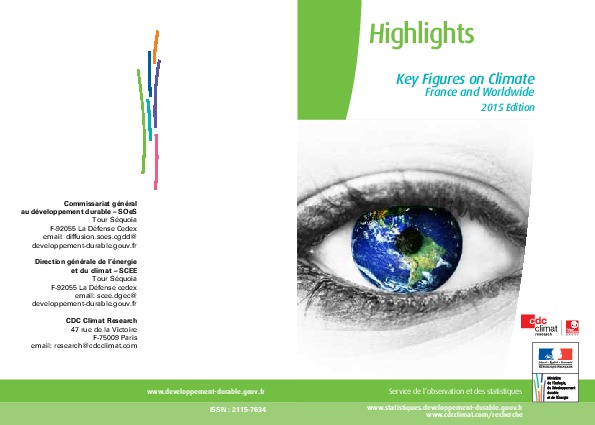Highlights – Key Figures on Climate France and Worldwide 2015 Edition
By François-Xavier DUSSUD, Florine WONG, Jérôme DUVERNOY and Romain MOREL
As with previous editions, the 2015 edition of “Key Figures on Climate” has been prepared within the context of the 20th Conference of the Parties on Climate Change (COP20) held in Lima from the 1st to the 12th of December 2014.
This latest version has been updated and expanded compared to the 2014 edition. Thus, European data now cover 28 Member States to take into account the accession of Croatia to the European Union on the 1st of July 2013. Moreover, the comparison of greenhouse gas emissions under “territorial” and “carbon footprint” approaches is based on the latest figures, dating from 2010. Furthermore, a section as been added on climate finance.
This publication, through its organization and the choice of covered opics, is aimed at informing the widest audience possible about limate change, its geophysical properties, causes and effects as well as the international policy frameworks stablished to limit its progression.
